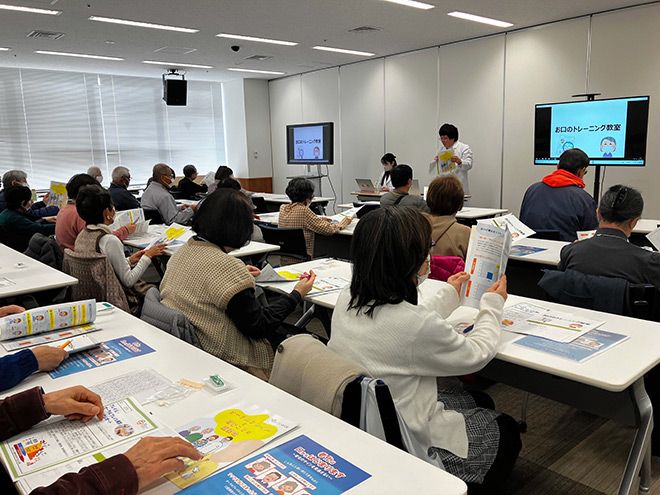Japanese snack company Lotte estimates that annual nursing care costs could drop by as much as 1.2 trillion yen ($7.9 billion) if seniors chew gum on a regular daily basis.
The calculation, reached in collaboration with Mizuho Research & Technologies, was based on a pilot study in Aichi Prefecture.
Lotte Co. on Oct. 21 said the experiment confirmed a correlation between chewing and health.
For the study, Lotte targeted 32 people aged 65 and older living in Toyota. Over the course of two and a half months, the group was instructed to perform mouth exercises that included chewing gum three times a day.
The members also attended a lecture on the importance of nutrition and good oral hygiene.
After completing the program, the group members boasted improved chewing ability and tongue strength as well as enhanced physical capabilities, notably walking speed and muscle strength.
As a result, the number of people free of health issues increased, while the number of those whose health was frail and often required nursing care decreased.
Based on the results, Mizuho Research estimated that annual nursing care costs per person could be reduced by 42,000 yen or so.
“While the emphasis was on the potential for reducing nursing care costs, the experiment also showed that a proper mouth exercise regimen could have a broader impact on society,” said Tomoharu Iida from Lotte’s sustainability promotion department.
He cited a reduced burden of nursing care and improved quality of life for elderly people.
Manabu Kanazawa, a professor of dentistry at the Graduate School of Medical and Dental Sciences at the Institute of Science Tokyo who took part in the study, noted that weaker oral functions are an important sign of aging.
“I believe that mouth exercises coupled with appropriate oral care are important to achieving a long and healthy life,” he said.
